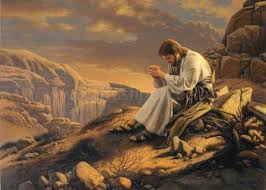
– 16th Oct 2022 –
Twenty Ninth Sunday in Ordinary time and Mission Sunday

Gospel text Luke 18:1-8
vs.1 Jesus told his disciples a parable about the need to pray continually and never lose heart.
vs.2 “There was a judge in a certain town,” he said “who had neither fear of God nor respect for man.
vs.3 In the same town there was a widow who kept on coming to him and saying, ‘I want justice from you against my enemy!’
vs.4 For a long time he refused, but at last he said to himself, ‘Maybe I have neither fear of God nor respect for man,
vs.5 but since she keeps pestering me I must give this widow her just rights, or she will persist in coming and worry me to death.’”
vs.6 And the Lord said,
“You notice what the unjust judge has to say?
vs.7 Now will not God see justice done to his chosen who cry to him day and night even when he delays to help them?
vs.8 I promise you, he will see justice done to them, and done speedily.
But when the Son of Man comes, will he find any faith on earth?”
**********************************************************
We have four commentators available from whom you may wish to choose.
Michel DeVerteuil : Holy Ghost Father, fmr director of the Centre of Biblical renewal, Trinidad W.I. .
Thomas O’Loughlin: Thomas is on the theology faculty of Nottingham University
Sean Goan: Sean studied scripture in Rome, Jerusalem and Chicago and teaches at Blackrock College and works with Le Chéile Schools.
Donal Neary SJ: Donal is editor of The Sacred Heart Messenger
************************************************
Michel de Verteuil
Lectio Divina The Year of Luke
www.columba.ie
General Comments
Today’s passage is in four movements:
– verse 1: introduction to the parable
– verses 2 to 5: the parable
– verses 6 to 8a: Jesus draws a conclusion from the parable
– verse 8b: a saying of Jesus, flowing from the parable.
At a first reading it is a teaching on prayer, “the need to pray continually and never lose heart”. In the Bible, however, “prayer” is always used in a wide sense to refer to our entire relationship with God, and indeed our spiritual life in general.
After last week’s story of the grateful Samaritan, we return to the parable form of the previous weeks. We must once more remember the ‘laws’ for interpreting a parable, in particular that we must choose which character in the story we want to focus on. In this parable it is clearly ‘the widow’.
The “unjust judge” is the foil who makes her greatness stand out; he is not important in himself. We must certainly not identify him with God, as some do. He ends up – like God – giving justice to the widow, but that is the only resemblance.
The widow is in fact a wonderful person, one of the great characters of the gospels, indeed of the whole Bible. Like last week’s grateful Samaritan, and like the humble servant of the week before, she will become real for us if we allow her to remind us of people we have known. We can then celebrate her and let her speak a message of repentance to us, both as individuals and as a church at every level:
*the universal Church;
*our particular Church,
*our diocese or
*the Church of our nation;
*our local church, parish orsmall basic community within the parish.
The widow is poor. She cannot back her claims with money or influential people; her power lies entirely in her moral qualities, her passion and her perseverance. We remember people from poor communities (nations, or groups within a nation) who are extraordinarily courageous in “seeking justice against their enemies.” For them justice takes many forms:
– getting their children into a good school
– finding jobs for them after they have left school
– finding money for their children’s food or education
– completing their homes
– maintaining their health so that they continue to serve their families.
 They “persist in coming to”
They “persist in coming to”
– government offices
– principals of schools
– hospitals and doctors’ offices
They have little concern for
– what people think about them
– how they appear to the general public
– whether they are being a nuisance.
They show the same qualities in their relationship with God, storming heaven with their prayers, caring little if these are theologically correct or frowned on by others.
The “widows” of our experience are often communities:
– poor nations standing up for their rights before the world community
– peace movements in Ireland, the Basque country,the Ukraine, or within the Israeli-Palestine conflict
– movements representing the oppressed like the landless in Brazil, citizens of Afganistan and victims of natural disasters like Pakistan, The Sudan – .
Like the widow in the parable, they have no financial or military resources, but they persevere in “seeking justice against their enemies,” confident that their cause will eventually triumph. c/f Ireland’s struggle with past institutional abuses of families, unmarried mothers /needy children
Jesus is not condescending to the poor. He draws his followers’ attention to their plight, not to feel sorry for them, not even to help them, but to learn from (be converted, evangelized by) them. We who reflect on these gospels today are often not in the situation of the widow. The gospel invites us to capture her spirit, making the journey from Luke’s “blessed are the poor” to Matthew’s “blessed are the poor in spirit.” We do this most effectively by entering into solidarity with the “widows” of our society, joining one of their organisations or taking up their cause publicly or at least privately.
The widow has two important lessons to teach us.
First, she had no recourse to force because as a poor person force was not available to her. We must choose to be like her by renouncing violence in any form in our “seeking for justice”.
So too, we are often lacking in passion in our search for justice. This is because injustice does not crowd us as it does poor people. We can survive without any dramatic change in our circumstances so we can afford to say, “This is how life is,” and leave things like that. The poor are like the widow, they do not have that luxury; they seek justice with passion because for them it is a matter of life or death. By entering into solidarity with them we too learn to seek justice with passion. They will always be with us.
We think of
*NGOs demonstrating against the world’s economic system, against wrong ‘developmental projects, as they have done in recent years in Seattle, in Quebec, in Genoa. Most of the demonstrators are not poor themselves, but they have identified with the poor and in the process taken on the qualities of the widow in the parable:
– seeking justice with passion,
– refusing to be put off by lack of success,
– renouncing violence.
There are times when destiny arranges for us to share the experience of the poor:
– we loose our wealth
– we become ill and must fall back on the facilities (or lack of them) of the poor
– we are victims of violent crime – common occurrences, e.g. ‘Russian military operations’ in the Ukraine , the Taliban’s dominance in Afkhanistan.
– innocent victims of global warming: fatal floodings, droughts, forestry fires, hunger
We turn these situations into moments of grace when we imitate the widow in the parable (and those we meet in real life).
Verses 6 to 8a. If we are starting from experience – as we must – we will have to interpret Jesus’ promise that “he will see justice done to them and speedily”. It certainly does not happen literally. I suggest two possible interpretations (you will probably find others):
a) We take “justice” as the objective righting of wrongs. This is often a long time coming, but when it does come, we are so relieved (and surprised) that we forget the long wait; it appears to come “speedily”.e.g national independence, freedom from violent coertion.
b) We can apply the saying to spiritual growth. Once we develop the right attitude then we “speedily” know that our prayers are answered, according to Jesus’ teaching that once we knock the door is already opened. We celebrate the times when we (or others) have experienced this.
Verse 8b. We are invited to identify with Jesus as he utters the anguished cry,
“When the Son of Man comes, will he find any faith on earth?” This is a “feeling” statement, and we must read it as such, not rationalize it.
We can interpret it in two ways:
a) How few people have faith like that widow! Since we have total confidence that the Son of Man will in fact come, it is an expression of regret. What a pity that so few people are willing to wait!
b) How long it takes before the Son of Man comes! I wonder if anyone will wait that long. When we feel those reactions within ourselves, it means that Jesus is at work in us.
Prayer Reflection
 “Blessed are those who hunger and thirst for justice, they shall have their fill.” …Matthew 5:6
“Blessed are those who hunger and thirst for justice, they shall have their fill.” …Matthew 5:6
Lord, we thank you for the widows of the modern worldwho persist in looking for justice:
– ethnic minorities throughout the world
– women looking for equal opportunities in society
– those who work for land reform in Brazil
– Caribbean parents giving up everything to secure a good education and fuller independence for their children.
We thank you that they continue to cry out night and day, even when we delay to help them, trusting in our promise to see justice done to them, and done speedily.
They assure us that when the Son of Man comes he will find faith on earth.
“No one possesses the truth, everyone seeks it.” …Bishop Pierre Claverie of Algeria, martyred in 1996
Lord, help us to seek the truth humbly, passionately and perseveringly like the widow in the gospel,
“In this Holy City of three mighty religions, no one seems to have the faith to make the peaceful decision.” …David Rudder, a calypsonian in Trinidad, commenting on the situation in Jerusalem – The Holy Land c 2,000 ad.
Lord, we thank you for those who are working for peace
– between Israelis and Palestinians
– in the Basque country, in the Congo
– between Muslims and Christians worldwide
– in the world’s campaigns against terrorism and oppression.
We thank you that they keep on coming and saying, “We do not want war,”
continue crying to you day and night even when you delay to help them.
Lord, we have created a civilization in which self-interest is the highest value,
and competition the main incentive to progress.
The ideal is to have neither fear of you nor respect for man.
Forgive us that as a Church we have given up hope that things could be different,
and even say that you want them to be as they are.
We pray that your Church may be like the widow,
always coming back in search of new solutions,
with the confidence that if we do not meet with success,
it is merely that you are delaying to help us,
for the poor are your chosen ones
and your will is to see justice done to them and done speedily.
“All holy desires grow by delays.” …St Gregory
Lord, many religion teachers offer people naive teaching on prayer,
making it seem easy, as if we merely have to ask for things and we get them.
Help us to share with others the teaching of Jesus on the need to pray ‘continually‘ and never lose heart.
Remind us that when you delay to help us you ensure that there will always be faith on earth.
 Lord, there are times when we experience you as a hard judge
Lord, there are times when we experience you as a hard judge
and we are poor widows who must keep coming to you,
demanding justice against those who oppress us.
Lead us deeper into ourselves
where we can experience that we are your chosen ones and you will see justice done to us and done speedily.
Lord, at this time in human history many are seeking vengeance for terrorist attacks.
We pray that your Church may be in word and in deed the prophetic voice of Jesus
telling his disciples the parable of the widow seeking justice against her enemies
******************************************
Thomas O’Loughlin,
Liturgical Resources for the Year of Luke
www.columba.ie
Introductory Notes
 Today we hear how Jesus told his disciples a parable about the need to pray continually and never lose heart. We are now gathered to pray for our needs and to thank the Father for his gifts; and the greatest of his gifts is his Son who is present among us. Now let us ask pardon for the times we have not prayed and for the times when we have lost our faith in God.
Today we hear how Jesus told his disciples a parable about the need to pray continually and never lose heart. We are now gathered to pray for our needs and to thank the Father for his gifts; and the greatest of his gifts is his Son who is present among us. Now let us ask pardon for the times we have not prayed and for the times when we have lost our faith in God.
Gospel Notes
Today’s reading forms a distinct section of Luke’s gospel and is found nowhere else in the gospels. It is a difficult passage because it brings together the theme of prayer with that of the sufferings of the Christian community who must persevere in hope during the long wait to see God’s justice, and also brings in, once again, the theme of the appearing of the Son of Man. This final theme has its most enigmatic exposure in Luke in 17:20-37 — a passage so difficult that it has been skipped in the Lectionary — where the moment of the appearing of the Son of Man is presented as sudden and wholly unexpected, but also as the day of the vindication of those who have remained faithful to God.
In preaching today we have to approach this text at two levels.
The first is to concentrate on the core story: prayer and perseverance. On this we have a well-formed parable where the poorest of the poor, a widow (the very symbol of powerlessness in an agrarian patriarchal society) is shown as the contrast to the disciple who can stand before the righteous God. If you can accept that a mere widow can succeed before an unjust human power, then how can you doubt that God, who is goodness and righteousness, will not hear your prayers? This core, with its combination of teaching on prayer and concern for the poor, forms a more than adequate basis for catechesis today.  However, there is also a second level of meaning within which Luke wraps the parable: not only have the Christians to wait for vindication, not only must they persevere in hope, but they must recall the coming of the Son of Man. So the final verse puts before the listeners this question: Yes, indeed, God is faithful and will in the end vindicate his chosen ones; but what of the disciples? Will they wait and persevere until that moment of vindication (which Luke describes here, and in 17:20-37, as the moment of ‘the coming of the Son of Man’)? This is a theme which is probably too complex to present in a homily at a Eucharist especially since the theme of the Son of Man is not part of our preaching tradition. However, it does add another dimension to how Luke sees discipleship.
However, there is also a second level of meaning within which Luke wraps the parable: not only have the Christians to wait for vindication, not only must they persevere in hope, but they must recall the coming of the Son of Man. So the final verse puts before the listeners this question: Yes, indeed, God is faithful and will in the end vindicate his chosen ones; but what of the disciples? Will they wait and persevere until that moment of vindication (which Luke describes here, and in 17:20-37, as the moment of ‘the coming of the Son of Man’)? This is a theme which is probably too complex to present in a homily at a Eucharist especially since the theme of the Son of Man is not part of our preaching tradition. However, it does add another dimension to how Luke sees discipleship.
Homily notes
1. ‘Now will God not see justice done to his chosen who cry to him day and night even when he delays to help them?’ When most Christians hear these words they immediately think of their own needs and wants, and their prayers, and their desire to have their prayers answered. This is an interesting move. We know that love is incompatible with selfishness or self-centredness, yet when we hear about prayer and the answer to prayer, we think first of our prayers, we think selfishly.
2. But if we are to be able to think about this gospel, then the first step is to move the focus out from our selfishness – only then will we have that purity of mind and heart that will allow us to glimpse the meaning of what the Christ is saying to us. The first question is not ‘Why does God not answer my prayers?’ but ‘Who are the chosen ones of God for whom the Father will see justice done?’ From the times of the prophets who spoke about God’s defence of the anawim, to the Christ, and down through the life of the church, there has been but one answer: the poor. The Lord will vindicate the poor as the Lord vindicated Lazarus who sat, full of sores, at the door of the rich man’s house (Lk 16).
3. The great Dominican theologian, Gustavo Gutierrez, once said: ‘Poverty is a multi-faceted, inhuman, and unjust reality; poverty is complex. Important though the economic dimension is, poverty is not simply an economic reality … This point is reinforced when we see how complex the idea of ‘the poor‘ is in the Old and New Testaments: it may refer to those who beg to survive;
to the sheep without a shepherd;
to those ignorant of the Law;
to those called in John’s Gospel ‘the accursed’ (In 7:49);
to women, children, foreigners and notorious sinners;
to those afflicted with serious diseases …
Poverty is not a matter of fate; but a condition brought about; it is not a misfortune, but a matter of injustice .
It is the work of human hands:
of economic structures;
of social greed;
of racial, cultural and religious prejudices that have accumulated over history;
of ever more overweening economic aspirations.
It follows that its abolition lies within our power.
4. Of course, there will be many – included in the assembly gathered to receive the gifts of the Lord’s bounty at the Eucharistic table – who will find such ideas subversive and who would prefer an abstract homily on the ‘problem of unanswered prayers’. So is this something that should be addressed at the Eucharist? The answer lies in the fact that the Eucharist is the celebration of love: God’s love for us in Christ, our attempt to pattern that love in our relationships, and to return it as our sacrifice of thanksgiving and praise. To quote Gutierrez again: ‘Christianity sees in the refusal to love other people nothing less than sin: the ultimate root of poverty and dehumanisation.’
5. Let us note the sad fact that poverty is becoming more widespread, not less, in the world. We live at a time when the planet’s population is clustering at the extremes of the economic spectrum: the gap between those with  use of the resources, with scientific and technical know-how, and those without, is widening. More and more the people of the planet are falling into one or other group: the exploiting and the exploited. And it happens variously in each society so, for example, even in poor societies women are more exploited than men. Indeed, some economists talk of the ‘ feminisation of poverty’ because women are always more affected by poverty in its various forms (economic, medical, educational) and, then, in addition, women experience discrimination from men, and may also suffer more if they belong to disadvantaged cultures or races. If one wants to know the facts one can just look them up in reports by the World Bank – all there on the internet.
use of the resources, with scientific and technical know-how, and those without, is widening. More and more the people of the planet are falling into one or other group: the exploiting and the exploited. And it happens variously in each society so, for example, even in poor societies women are more exploited than men. Indeed, some economists talk of the ‘ feminisation of poverty’ because women are always more affected by poverty in its various forms (economic, medical, educational) and, then, in addition, women experience discrimination from men, and may also suffer more if they belong to disadvantaged cultures or races. If one wants to know the facts one can just look them up in reports by the World Bank – all there on the internet.
6. This poverty in all its shapes insults human dignity and is contrary to the will of God. When we as Christians work to create a poverty-free world, we are not engaging in some sort of social crusade – although that is all it will appear to be to those who do not embrace of mystery of the Christ – but actualising the presence of the love of God for every human being that is seen in the coming of the Christ. It is because the Father has sent Jesus to all who are in need, that we can actualise this love in combating the inequalities and prejudices of our present situation.
7. But there is a sting in the tail of today’s gospel: shall we be willing to take on this task of being the conveyors of God’s love to those who cry for justice? It is the willingness to take on this task, the work of the Christ, that is faith. Faith is working with Jesus in his work, not an exercise in ‘ticking boxes’ about whether we accept some random religious ideas. So will the Son of Man find any faith on the earth? Or put another way, will we simply let injustice run rampant so that no one undoes the effects of that sin which enslaves so many of God’s beloved?
*******************************************
Sean Goan
Let the Reader understand
www.Columba.ie
Gospel Notes
In this gospel we return to themes of faith and prayer. The parable told by Jesus here is similar to the one told in 11:1-13 about the friend who comes at midnight looking for bread. This time, however, the character is even more contrary because he is an unjust or corrupt judge. In the face of such a person a poor widow would have had little chance of having her case dealt with fairly. Yet she is put before us as an example of perseverance — she simply won’t be put off and finally he gives in. Clearly Jesus is not saying God is like the unjust judge, a point he makes in the conclusion, but he is asking how many people would be willing to persevere as the woman did.
Reflection
The Gospel of Luke as we have seen returns often to the theme of prayer. Not only does Jesus teach about prayer but he is depicted as a man of prayer. When he speaks about it he does so in terms that may surprise us.  His focus is on the attitude of the one praying rather than on God. For Jesus, it goes without saying that he trusts deeply that God hears our prayer. Jesus’ concern is that we might not believe this and so give up. Therefore in Luke we see people praising and thanking God, giving out to God, turning to him in their need. The message is simple: keep on praying and remember that its purpose is not to change God but to change us.
His focus is on the attitude of the one praying rather than on God. For Jesus, it goes without saying that he trusts deeply that God hears our prayer. Jesus’ concern is that we might not believe this and so give up. Therefore in Luke we see people praising and thanking God, giving out to God, turning to him in their need. The message is simple: keep on praying and remember that its purpose is not to change God but to change us.
******************************************
Donal Neary S.J.
Gospel reflections for Year C: Luke
www.messenger.ie/bookshop/
People with Backbone
We like people with backbone, The courage of their convictions; who follow through on what they say they will do, who are not wishy-washy. Jesus was like that.
 He feels a fire in his heart, in his belly and he wants it to be lit. The fire is the fire of justice – wanting the justice this widow was due. The job of the judge at that time was to care for the widow and orphan, the neglected ones of society. She had a right to his assistance.
He feels a fire in his heart, in his belly and he wants it to be lit. The fire is the fire of justice – wanting the justice this widow was due. The job of the judge at that time was to care for the widow and orphan, the neglected ones of society. She had a right to his assistance.
What he stands for, the church stands for, even with opposition. This is a culture which supports life at all stages; which speaks out against any injustice; which supports love and wants to encourage relationships of real and genuine love. Its views on sexuality and sexual relationships will mirror that, in a world where sex can be casually viewed and used.The Church supports the elderly, and a culture of sharing rather than accumulation of wealth; works and supports peace in the wold; And joins the fire of Jesus to bring the reign of God alive in the world.
The fire of Jesus is the fire of love, compassion and justice  – three core values of the Christian and the Church. We need to keep all that alive and not get caught up in administration and buildings, even overriding regrets about the past .
– three core values of the Christian and the Church. We need to keep all that alive and not get caught up in administration and buildings, even overriding regrets about the past .
Can we hope that we can be a Church that fulfils and makes alive the the best of the fire of Jesus? He ‘has come to bring fire to the earth‘ and wants it to be kindled.
Lord , may your kingdom come.
******************